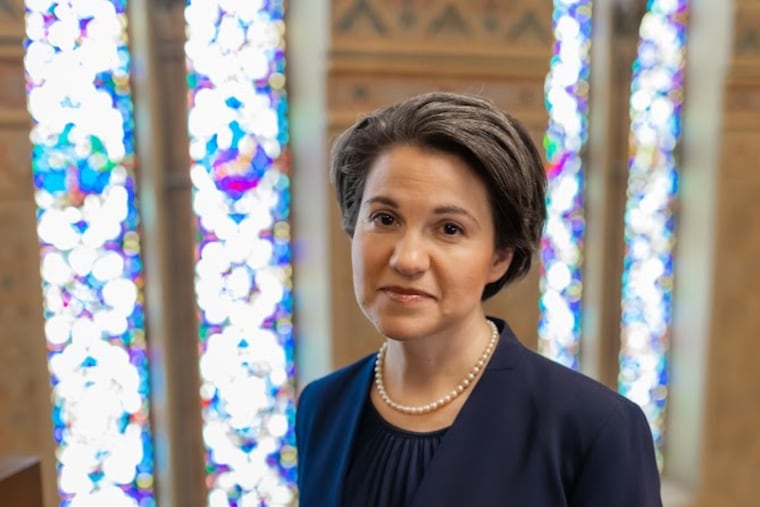Religion doesn’t always justify antiabortion rhetoric. Look at Judaism.
The Jewish tradition teaches that life begins at birth.

Religion is often used as a justification for the anti-choice movement, but there are many religious perspectives. In the Jewish tradition, life does not begin at conception.
Thirty years ago, I marched on Washington to protest a case before the Supreme Court that threatened Roe v. Wade. I joined Jewish congregations in partnership with the Religious Coalition for Abortion Rights, an interfaith movement whose existence indicates support for reproductive rights in the religious world within and beyond my Jewish community. I wore a shirt to the protest that quoted the 19th-century Rabbi Sofer: “No woman is required to build the world by destroying herself.”
In the 1990s, I could not have imagined that we would still be fighting for reproductive choice in the 21st century. And yet here we are.
To strip people who can become pregnant of our right to safe and legal access to abortion is an assault on my religious liberty as a Jew and on my human dignity as a woman.
Jewish tradition teaches that a nefesh, or a full-status life, begins at birth. Other religious traditions believe life begins at other stages. Restrictive abortion laws — rooted in only some religions’ interpretation of when life begins — impose religious beliefs on me. This is a violation of my rights.
The Jewish belief that life begins at birth opens the door to reproductive rights. Jewish tradition regards abortion as essential health care, not only permitting the termination of pregnancy but even prescribing it when the health of the pregnant person is in danger. But this is our belief: I would not coerce anyone from any religion to adopt this Jewish approach. I believe that a pregnant person has the right to not choose abortion for themselves, just as I oppose those who would deny them that choice.
Jewish teachings privilege the commandment pekuach nefesh, meaning “to preserve life.” Without safe and legal abortion rights, women and transgender people who are pregnant risk death. The dangers of abortion restrictions most harm people who already face our society’s injustices of racism, ableism, anti-immigration, and poverty. Those most at risk are the very people society has the most critical responsibility to protect. Repeatedly, the sacred words of the Torah charge Jews to care for the widow, the orphan, and the stranger, compelling us to protect the most vulnerable in our society. Our text teaches: “When you reap the harvest in your field and overlook a sheaf in the field, do not turn back to get it; It shall go to the stranger, the orphan, and the widow.”
The holy words of my tradition oppose the misogyny of anti-choice legislation and shape an undeniable affirmation of the agency of all who could become pregnant. This is not just a women’s issue. Our community is at risk when people do not have a right to choose how and when to start a family — and when pregnant people’s lives are at risk.
I am proud to join Jewish clergy as a part of Rabbis for Repro, a network of over 1,600 Jewish clergy powered by the National Council of Jewish Women, who raise our voices for reproductive health, rights, and justice. Our tradition demands we not remain silent in the face of injustice, and that we heed the Torah’s call: “Do not stand idly by while your neighbor bleeds.”
Rabbi Jill Maderer is a senior rabbi at Congregation Rodeph Shalom in Philadelphia.